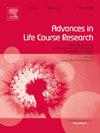Although the gender gap in labour force participation has narrowed considerably in many European countries, life course scholars have shown that the transition to parenthood exacerbates gender inequality in couples’ division of paid work. Hitherto, variation by migration background has received limited attention in research on the effect of parenthood on couples’ gender division of paid work. This is remarkable given that such heterogeneity is theoretically informative on differential interconnectedness of life course events, but may also inform policy makers on the life course transitions that induce migrant-native differentials in women’s labour force participation. This study adopts a life course perspective and uses longitudinal microdata from Belgian social security registers to examine variation in couples’ gender division of paid work around family formation by migration background. Taking into account couples’ migration background – by considering the origin group and migrant generation of both partners – we identify four patterns of gender dynamics around family formation in couples where at least one partner is of migrant origin. These four patterns emerge from (dis)similarities with native couples with respect to their pre-birth division of paid work on the one hand and their changes in this division around family formation on the other hand. These results highlight that combining an account of couples’ division of paid work prior to the birth of a first child with a perspective focussing on how the division of paid work changes around family formation is necessary for a thorough understanding of variation by migration background.


